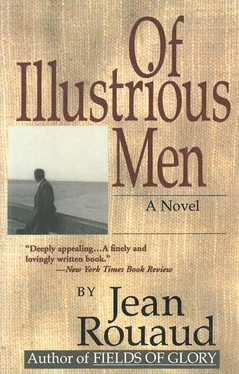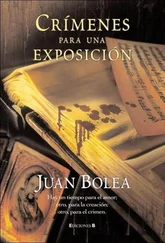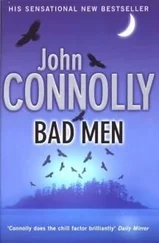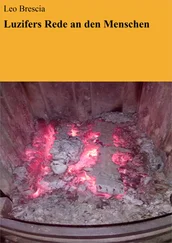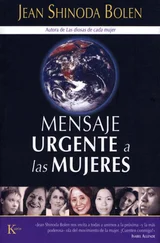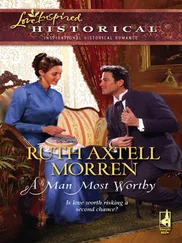Jean Rouaud - Of Illustrious Men
Здесь есть возможность читать онлайн «Jean Rouaud - Of Illustrious Men» весь текст электронной книги совершенно бесплатно (целиком полную версию без сокращений). В некоторых случаях можно слушать аудио, скачать через торрент в формате fb2 и присутствует краткое содержание. Год выпуска: 2011, Издательство: Arcade Publishing, Жанр: Современная проза, на английском языке. Описание произведения, (предисловие) а так же отзывы посетителей доступны на портале библиотеки ЛибКат.
- Название:Of Illustrious Men
- Автор:
- Издательство:Arcade Publishing
- Жанр:
- Год:2011
- ISBN:нет данных
- Рейтинг книги:4 / 5. Голосов: 1
-
Избранное:Добавить в избранное
- Отзывы:
-
Ваша оценка:
- 80
- 1
- 2
- 3
- 4
- 5
Of Illustrious Men: краткое содержание, описание и аннотация
Предлагаем к чтению аннотацию, описание, краткое содержание или предисловие (зависит от того, что написал сам автор книги «Of Illustrious Men»). Если вы не нашли необходимую информацию о книге — напишите в комментариях, мы постараемся отыскать её.
Of Illustrious Men — читать онлайн бесплатно полную книгу (весь текст) целиком
Ниже представлен текст книги, разбитый по страницам. Система сохранения места последней прочитанной страницы, позволяет с удобством читать онлайн бесплатно книгу «Of Illustrious Men», без необходимости каждый раз заново искать на чём Вы остановились. Поставьте закладку, и сможете в любой момент перейти на страницу, на которой закончили чтение.
Интервал:
Закладка:
But remembrances of Napoleon would probably not have been enough to get us to the Invalides had there not been a more deep-seated reason for our visit. After Father had leaned over the imperial tomb for a few moments, and without even lingering over the pompous bas-reliefs in the crypt representing the new Christ-king surrounded by his generals as if they were apostles, he began to examine the hundreds of flags displayed in the church, in search of the one of the seventh regiment of dragoons, to which his father had belonged. After years of war, a dragoon in a trench looks no different from any other poilu — French recruit — overwhelmed by cold and suffering. The photo of Pierre taken at the front, his blue uniform covered in mud, but smiling in spite of everything so as not to worry his family, hasn’t a great deal in common with the one taken when he was in training a few years before the war, which shows him wearing a helmet with a long plume, his sword by his side, thrusting out his chest in his beautiful frogged uniform with the two embroidered 7’s on the collar. But when you see the name of the person this photo was dedicated to, you realize that the main purpose of his noble bearing was to captivate his betrothed and future spouse. The quartermaster sergeant who, in another photo taken at the same period, is seen posing in high spirits with his comrades in arms in front of the horseshoe staircase leading up to the Chateau de Fontainebleau, the town where his regiment was based, probably never for a moment imagined that the mischief his squadron got into would one day result in a theater of horror. From his four years at the front, he was to bring back a profound distaste for all things military that he communicated to his son, who, drafted into the regular army after his two years in the Resistance, didn’t hesitate to chuck a camembert at the head of an officer whom he thought had given a totally stupid order — a gesture that, it is easy to guess, was not without its consequences.
And now here he was, with his nose in the air, trying to find his father’s flag among those pitiable trophies that in times gone by made the ideal target for the enemy gunners but were no protection for the poor wretch who had to carry them. They were attached to the wall several yards above the floor, as tightly packed as lengths of material in a general store. The only way he could identify them was by the faded fragments of letters and badges hidden in their folds and almost impossible to decipher among all their golds, blues, and purples. His head thrown back, one after the other he passed them in review, progressing slowly, subjecting them to a meticulous examination as if, by means of this inventory, he were trying to discover and bring home the Napoleonic ashes of his father. This uncomfortable position soon made him feel dizzy; he lowered his head, passed a hand through his white hair, automatically took the tube of aspirin out of his pocket, and, still swallowing a pill, came back and leaned on the railing where he drowned his disappointment in sorrowful contemplation of the tomb.
That evening, while we were having dinner at a brasserie near the hotel (where for four days running our menu never varied, because from the second night on the waiter greeted us with a friendly “The usual?” — which so committed us that we felt we couldn’t ask for anything different), Father felt unwell. He hadn’t said a word from the beginning of the meal. The episode at the Invalides had visibly fatigued him. There had been the long wait in the ticket line where, standing in the rain in his gray suit, his jacket collar turned up in a pathetic attempt to protect himself, shielding the flame of his lighter with the hollow of his hand when he lit his cigarettes, he hadn’t wanted us to relieve him because we would have had to leave the shelter of a porch. And then the vain search for his father’s flag. Back at the hotel he had said he wanted to rest for a while before we went out to dinner.
His silence during the meal was not the kind that we felt justified to interrupt. We attributed it to his disappointment. We exchanged a few words among ourselves, when suddenly his fork froze in midair above his plate. He looked stunned, his face was contorted. “Joseph, what’s the matter?” By the time the waiter had rushed up to our table, watched by all the other diners, he had slowly put his fork down on the edge of his plate, put a hand over his chest, and taken a deep breath. “It’s nothing. Just a dizzy spell.”
You have now come to the day after Christmas. There’s a ladder propped up against the roof of the shed where the clothes are dried. Climbing over the sheets of corrugated iron, being careful only to step on the places supported by the rafters so as not to fall through, your father is pruning the branches of the neighbor’s plum tree that had gotten caught up in the telephone wires. The top of the leafless tree is swaying in the wind. Our troubleshooter is freeing the wires that the storm now brewing would be most likely to cut. When he comes down from the roof, gripping the ladder with extreme caution, he says he doesn’t feel very well. This rather surprises you, because the effort involved was nothing special for him. In comparison with the enormous work he had put into renovating the house and garden, this bit of pruning can only qualify as a minor maintenance job. You’ve seen him move mountains, or at least chunks of mountains, which he stockpiles at the bottom of the garden, and a little sawing shouldn’t be enough to exhaust him. Nor should his fatigue be attributed to age: after all, he’s only forty-one, even though with his prematurely white hair and the very fact that he is your father, you don’t see him as a young man.
For some time you have known that he has been in pain, and has been stuffing himself with pills to alleviate it. Not that he hasn’t sought advice. He has seen so many doctors you can’t keep track of them, and in desperation he has even made an appointment for the next day with a chiropractor. This you discover with amazement many years later, glancing through his diary. And this posthumous written trace leaves you with the strange impression that on the day after his death he was still alive, and that his real death dates from the first blank page in his diary. You can’t help thinking that with empirical methods this country healer might perhaps have saved him.
The most eminent specialists declared, basing their opinions on X rays, that his back pains were caused by the compression of his intervertebral discs. They therefore advised him to stop carrying anything heavy. But when it comes to suitcases, it’s difficult to do otherwise. This would mean giving up his profession, which in any case he is thinking of doing, but he has postponed the improvements to the garden, for which he has collected those remarkable stones that are now hidden under the long grass. They’ll have to wait until his back leaves him in peace.
In this hope, he now gets up a quarter of an hour earlier every morning and scrupulously performs a long series of the exercises he had to do at the specialist’s and which he wrote down in order to remember them. Lying on the bedside mat, his open notebook on the floor within reach, he puts himself through a succession of scissors movements, of body bends where he has to lean over and touch his toes, which isn’t made any easier because he’s so tall that his arms are short (his shirtsleeves all have a tuck in them at biceps level), exercises of this sort make him feel he’s on his last legs, and anyway he doubts whether they’re going to restore his worn-out discs. But at least if there isn’t any improvement it won’t be his fault.
His suffering isolates him. On Sundays, there’s no longer any question of family outings. On the morning of his day of rest he stays in bed and, when he does get up, after his gymnastics all he does is hold his head in his hands and listen to the same records he’s been putting on for months. Naturally, he had made the record player himself: he had been content to buy a motor unit and a turntable, and had made the casing out of plywood that he covered with adhesive plastic material, green imitation leather on the outside, and gray imitation marble on the inside. The loudspeaker is inside the radio. He is forever putting on his favorite group; they are a bit like an adult version of a boys’ choir, only there aren’t so many of them; that is, there’s a soloist with a light, well-placed voice, who never seems to force the high notes, and eight other singers who mainly contribute to the choruses, in which they have to imitate the sound of bells or something of the sort. This probably has something to do with his lacking camaraderie and group solidarity. The football team, the theater company, the reunion of the “forty-year-olds” — these always end with songs. Perhaps, without realizing it, he identifies himself with the lead singer? “Joseph, if you’d seen him on the stage — he could just as well have become an actor.” How many regrets is his reverie tinged with?
Читать дальшеИнтервал:
Закладка:
Похожие книги на «Of Illustrious Men»
Представляем Вашему вниманию похожие книги на «Of Illustrious Men» списком для выбора. Мы отобрали схожую по названию и смыслу литературу в надежде предоставить читателям больше вариантов отыскать новые, интересные, ещё непрочитанные произведения.
Обсуждение, отзывы о книге «Of Illustrious Men» и просто собственные мнения читателей. Оставьте ваши комментарии, напишите, что Вы думаете о произведении, его смысле или главных героях. Укажите что конкретно понравилось, а что нет, и почему Вы так считаете.
